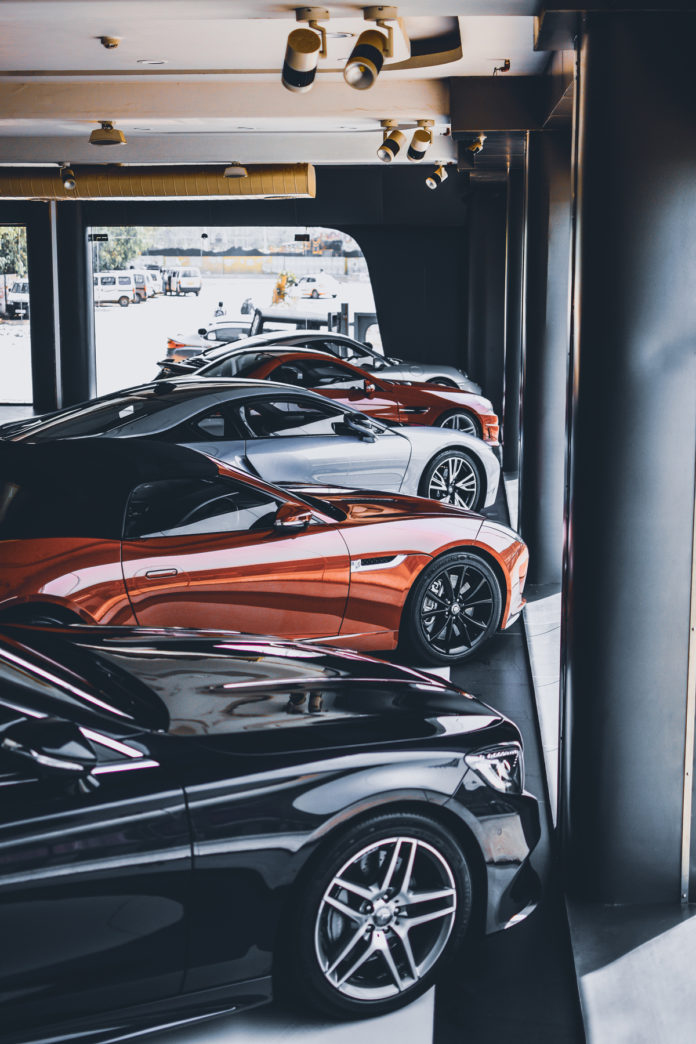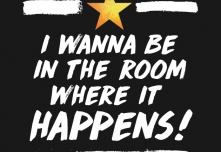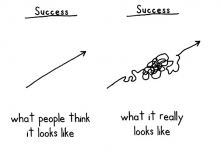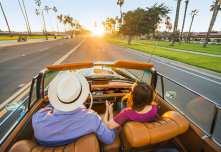
This article was originally published by Skip Winter on LinkedIn and is used with permission.
After more than 20 years of marketing, branding, and over 1,000 grassroots events and promotions for numerous Fortune 500 companies in multiple sectors. I started to wonder if grassroots/experiential events were still viable and valuable in the digital age. In 2003 when Toyota’s brand for millennials was launched and Red Bull was king, “Grassroots Engagement Marketing” was the buzz word of the day, as well as the way to build a brand.
In 2003 Red Bull was a billion-dollar company with only two SKUs (stock keeping units) and other major companies like American Express and other top-tier brands including Toyota/Scion followed suit and successfully launched brands with a grassroots strategy. Matter of fact, grassroots marketing was so successful for Scion that Toyota launched the all-new 1/2-ton Tundra with the same grassroots approach. I might add that grassroots marketing was a substantial piece of that billion-dollar budget. So, what happened to the marketing landscape? Well, it’s quite simple, the internet became more advanced, social media became wildly popular, cost effective and the phrases, “Digital Marketing” and “Social Media” became buzz word phrases that everyone in the dealership was force fed by traditional advertisers to the point that it was nauseating for experiential and engagement marketing professionals like myself.
The fact of the matter is, the words were actually the only things that most dealers understood. Fast-forward to 2018, and now the new buzz word phrases are “Close to the Funnel” and “Targeted.” With the whole Cambridge Analytics breach it appears that digital and social media marketing are slightly flawed, and most dealers have seemed to have forgotten how important it can be to reach out and engage their local community. Now, I’m not talking about just throwing your money at your favorite charity and placing a static vehicle on display or throwing up your tent or a sign and calling it a day. What I’m talking about is actually developing an engagement protocol and a strategy to create a relationship with a potential customer when they are in a non-threatening environment designed to get them to consider your dealership and brands when they are in the market for a new vehicle.
I call this a “Consideration Campaign”.
So, let’s talk about sponsoring a charity or an event for a moment. When a dealer does this, what’s the motive, goal and what are the KPIs (Key Performance Indicators)? Do you even know? In most instances dealers just do it so they can say that they sponsored a charitable community event or because someone in the dealership has a connection to the charity or event. However, in most instances dealers spend thousands of budgetary dollars in doing so, but they have no idea what they are getting into or how to leverage the event to their benefit. In most instances they don’t have the resources or manpower (because most events take place on a weekend) which is prime time for selling at the dealership. I get that, but they don’t even consider sending a team of professionals or what I call “Brand Ambassadors” to the event to represent the dealership.
Furthermore, they have no idea what a successful event looks like. If this is how your dealership does event marketing, then your only opportunity to engage and give potential customers an experience is when they come to the dealership to purchase a vehicle. And this is left in the hands of your sales consultant. This practice is flawed on a number of levels. For starters, when they come into the dealership they are already uncomfortable and apprehensive and it’s for good reason. Many sales people think they are helping customers solve problems – and they are to an extent, but the customer is coming in to purchase a car and this typically becomes the dealer selling them a vehicle rather than the customer buying what they. want. I should mention that I was a stockbroker in my younger years and I too was trained to sell to my customers. It wasn’t until I learned a valuable lesson, “People want to buy, they don’t want to be sold.”
Let’s talk about traditional and digital advertising for a moment. This is the kind of advertising that loses the face-to-face human component. As my good friend and former business partner used to ask dealers, “When’s the last time a customer came in and said, “WOW, I was driving down the highway and saw your billboard and it’s truly amazing!’?” Let’s equate this to the digital world, when’s the last time someone came in and said, “Wow, that pop-up ad you hit me with blew me away.” The fact of the matter is that most people are irritated by pop-up ads and many times they are so irritated that I pushes them to your competitor. The fact of the matter is that it isn’t always about price. Segue back to experiential, engagement marketing for a moment. I have worked in the field and actually witnessed excitement from consumers at events and have seen and heard the genuine excitement from them firsthand. I hosted two dealer events this past December where I was able to bring in live reindeer to a dealership and I heard from nearly every attendee that they would be back next year. And you know what’s even funnier, we sold two vehicles from the events.
Yeah, I know you’re thinking big whoop two vehicles, what was the ROI (Return on Investment) on that event? So, let’s talk ROI for a moment and why you shouldn’t ignore it, but place a little more value on the relationship with your customer. Just because you don’t sell a car from an event doesn’t mean the event was a bust. Think about it. Is there a perfect advertisement or event? I always joke with my dealers and tell them if I could find the one perfect event for them it would be the, “I Just Totaled My Car and Need A New One Event.” But we all know that’s not going to happen.
Like any sales program, it is a numbers game, I will give you that. However, when you sponsor an event and engage consumers you don’t know what happens after the event is over, and maybe, just maybe one of the event attendees will have been so impressed from the level of engagement and experience that they will go to work the next day and total their car. God forbid that doesn’t happen. Or (better yet) perhaps, they go to work the next day and they’re at the water cooler talking to their co-workers and wouldn’t you know it someone they work with needs a car, or their mom needs a car. And guess what? That guy who attended the event was so impressed not only at the knowledge of your field team, but he was blown away at the experience he/she had by someone from your dealership that he bird-dogged/referred them to you.
Yes, that’s right he/she had such a great time at the event and your Brand Ambassador sold not one but 10 cars for your dealership. And yes, in my career this happens all the time, yet my clients don’t always want to give credence because I think once they admit to me that they sold a car I will raise prices on them. Funny thing is I can’t tell you how many times I’ve heard from a salesman, “Oh, you didn’t know we sold a car from the event?” Then I’ve approached the GM and say, “I heard you sold a car from that event a few months ago.” To which the GM replies, “Umm yes didn’t I tell you that?” My reply, wink-wink sure you told me with a smile. Fact of the matter is that discounting the human or relationship sale is what might be holding your dealership back and I firmly believe it is the “X” factor in differentiating your dealership from the competitor down the street.
Let’s not forget the true meaning of grassroots marketing, which is the power of word of mouth. It’s a fact that the political candidate with the best grassroots campaign is generally the winner. So why wouldn’t you want the best grassroots campaign against your competitors.
Can we talk about the other impactful things an event or grassroots strategy can do for your dealership? Well, lets talk about the one that I believe is one of the most important effects of an event and I call it the “Unintended Consequence.” This is when you’re doing an event on or off-site and your sales team not only gets involved, but they get excited about your event and it’s this energy that pays dividends with morale and excitement in your dealership. And guess what, that event energy is infectious, and it turns into more sales for your store. Once upon a time I developed and executed a now famous event on a rooftop at a very high-profile dealership in New York City and not only did I and my crew become rockstars, but the energy from that event lasted for months and the dealership catapulted from the #22 dealership in the region and into the top 10 within a matter of months. The “unintended consequence” makes your sales consultants job more fun and infuses energy into your dealership an the sales process.
So, at this point you might be intrigued by a grassroots/experiential event, but if you are a typical client or dealer the next question for me will be, “Hey Skip, how do you quantify grassroots?’ At the time, I don’t think I had an answer and I’m not sure I do know. I certainly don’t want give a BS answer but what I think now is if you are always looking for the ROI you are tainting your message. If the objective is, 1) to get people to consider your dealership when they are in the market and the strategy is just to give them an experience and your intention isn’t to sell or do anything but give them an experience, don’t you think you are tainting your message? and 2), don’t you think the client recognizes and senses that? And if he/she does recognize it, don’t you think it will turn them off to what you are trying to sell them? And the bigger question is don’t you want them to buy from you, rather than selling them something?
The fact of the matter is you are already spending money on grassroots events, but the key is to leverage what you are already doing. Having worked for dealerships as well as in a dealership, I now see this from two different perspectives. When I worked for dealerships and the manufacturer I never fully understood why they would question the events that I proposed to them, but instead, would go ahead and do an event or sponsor one on their own. I now understand that most dealerships generally love doing events, most dealerships do make an effort to be a part of their local community and they generally will spend good money to do so. Let’s be more specific, they like to host or sponsor events, but they don’t always have the time or resources to host their events properly and ensure its success. And the reasons for this are many.
So, if after reading this you determine that you value community involvement and events that engage consumers, it might be time to take a look at what you currently spend or have spent on events or sponsorships; or if you find that you are already spending on events then, it might be time to get back into the Engagement Marketing game and start leveraging the thing you’ve replaced with digital marketing and realize the value of building a face-to-face, personal relationship with your customers. Newsflash, not everyone is in the market to buy a car, but when they are, don’t you want them to consider your dealership? Experiential Engagement Marketing puts you one step closer than your competition to the customer and the sale.
Skip Winter is an entrepreneur, marketer and public speaker with over 20 years of marketing experience in multiple sectors including: automotive, consumer products, retail, financial services and restaurant. He has worked with Fortune 500 brands including: Toyota Motor Sales, Dr. Pepper Snapple Group, Nike and more. He is currently Director of Marketing for Rowe Automotive Group, Founder of Link Marketing LLC – soon to be newly rebranded as tbd Marketing. He is also the writer/creator of Unit 5 Comic. Inquiries: skip.winter@gmail.com












